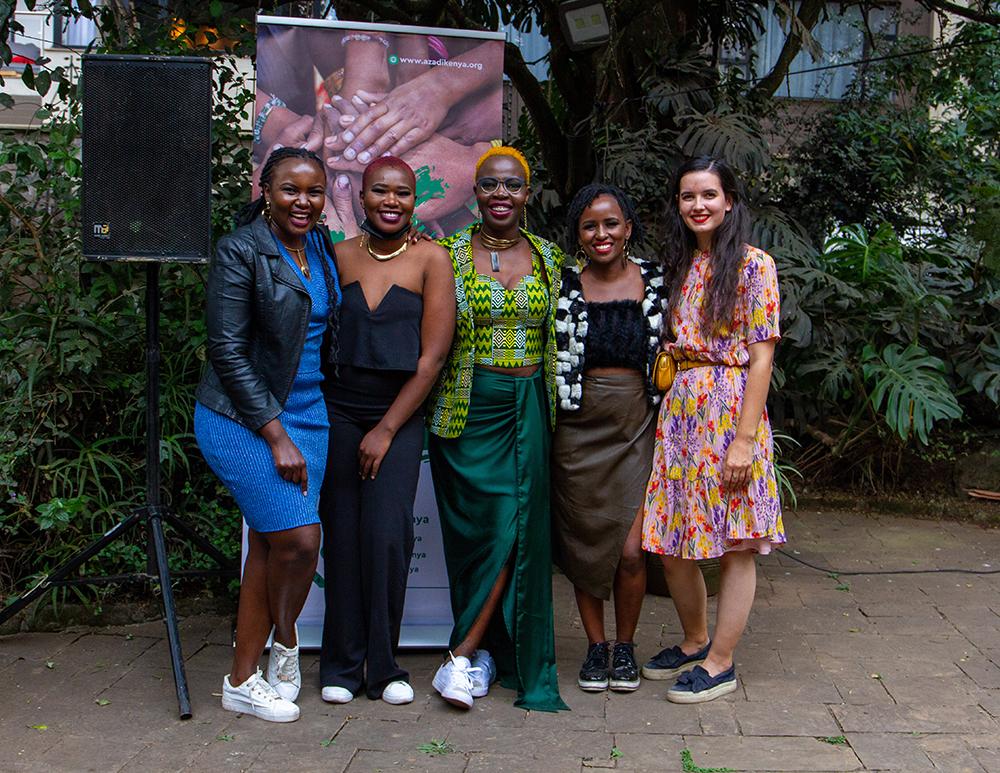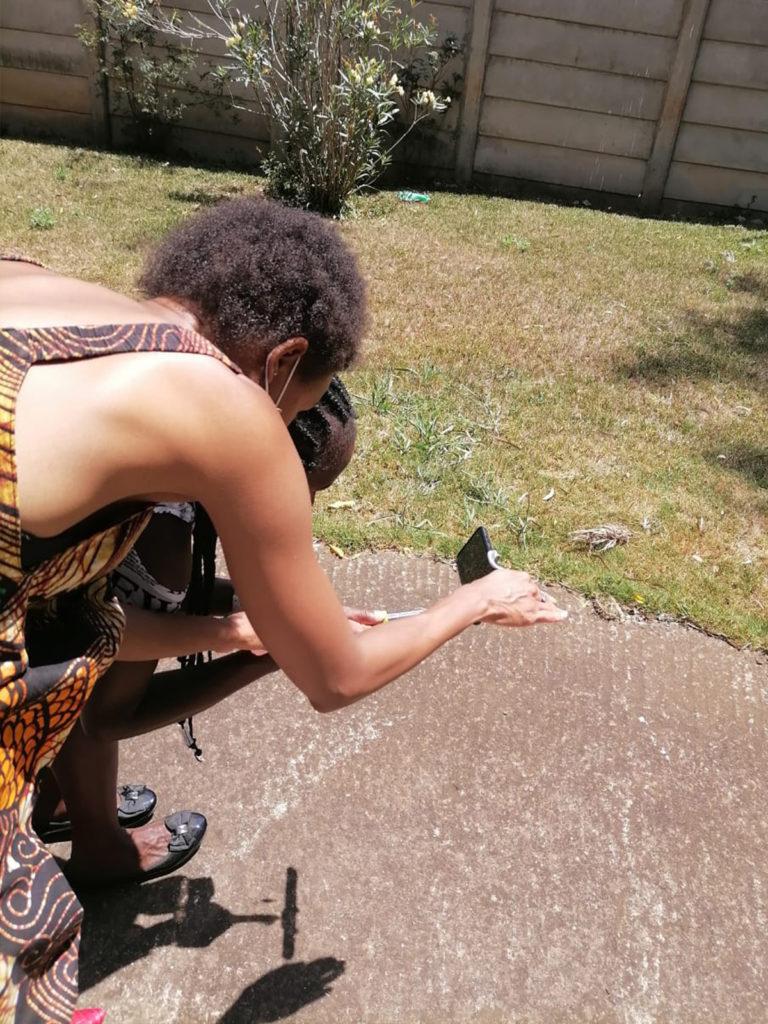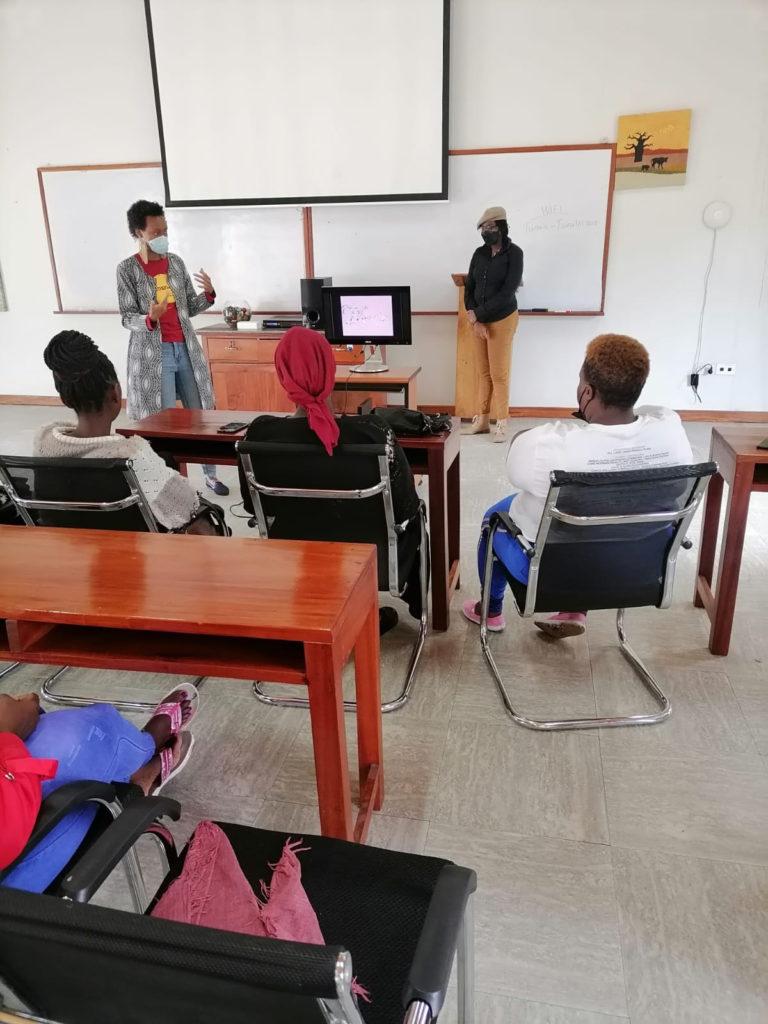Azadi Kenya is a survivor-led anti-trafficking organisation based in Nairobi, Kenya, whose primary aim is to provide long-term support to survivors of human trafficking.
In 2021, Azadi implemented a Moodle LMS solution to create spaces and programmes that enhance the agency of survivors of trafficking, support recovery from trauma, and sustain their reintegration into society. Not only has the platform provided a safe and effective collaborative learning space for survivors, it has created efficiencies for the Azadi team and informed improvements to the learning programme. The organisation was founded by renowned survivor leader Sophie Otiende who saw a gap for long-term support, community, and survivor inclusion in the anti-trafficking sector.

“We are big on survivor leadership at Azadi, and as such we are encouraging survivors to participate in our training programmes, exhibit agency, and lead the anti-trafficking movement.” Emma Christensen, (Learning and Development Officer) at Azadi.
Challenge
Providing training for digitally excluded people
Azadi’s mission is to enable and nurture safe spaces and communities for survivors of human trafficking. It is very common for survivors to experience stigma, discrimination, and victim-blaming as they’re rescued and reintegrating in their community, which drastically hinders their ability to heal, thrive, and become self-sufficient. Azadi identified that an online learning programme would help survivors move beyond this point.
When researching an online learning solution, Azadi identified that a user-friendly platform was pivotal because most of the survivors who would use the system are digitally excluded and have limited experience operating software or an LMS. For that reason, the platform had to be simple and easy to navigate for people with limited digital literacy.
Data privacy and streamlined data management was also critical for Azadi. “We’re also very big on maintaining data and keeping it safe,” said Christensen “The fewer places our data is kept, the easier it is to keep it safe and also export the data and use it for analysis“.
Solution
A user friendly, accessible platform
Azadi’s team built their online training platform on a cloud-hosted Moodle LMS platform. Their own team were able to create courses with activities and resources, personalise their platform and create a smooth onboarding process for their learners.
We found that Moodle was incredibly easy for us to set up to fit our needs and very easy for the survivors to navigate, as everything is mostly there when you open up the site. Despite how easy it is to use, it is still highly customisable and can be made to fit our needs easily.
Emma Christensen, Learning and Development Officer at Azadi

Two of the participants of a mixed media workshop where survivors of trafficking were tasked to create a video and direct the entire process including the filming, writing poetry, the recording, and music. It was facilitated through Moodle
Results
A streamlined platform that enables Azadi to improve their processes and learning materials
Azadi Kenya’s learning platform has not only provided a safe and effective collaborative learning space for survivors, but using Moodle to deliver training for their community ensures that Azadi is able to keep track of all the courses they’re doing and aiming to do, keeping all their data in a single location and streamlining the way in which their learners are entered into the LMS and receiving access to the training. “In the past, this would have been an incredibly labour-intensive job. Moodle has made that so much easier.” said Christensen “We’re a small team, so anything that can make organising our efforts simpler and let us focus on our programmes is a win in our book“.
In turn, the transparency of data has allowed for an ongoing cycle of refinement and improvement in the delivery of learning materials.
Learn more about Azadi Kenya and how you can support them on their website.
Azadi Kenya deliver their training using MoodleCloud, a cloud-hosted solution for Moodle LMS.





